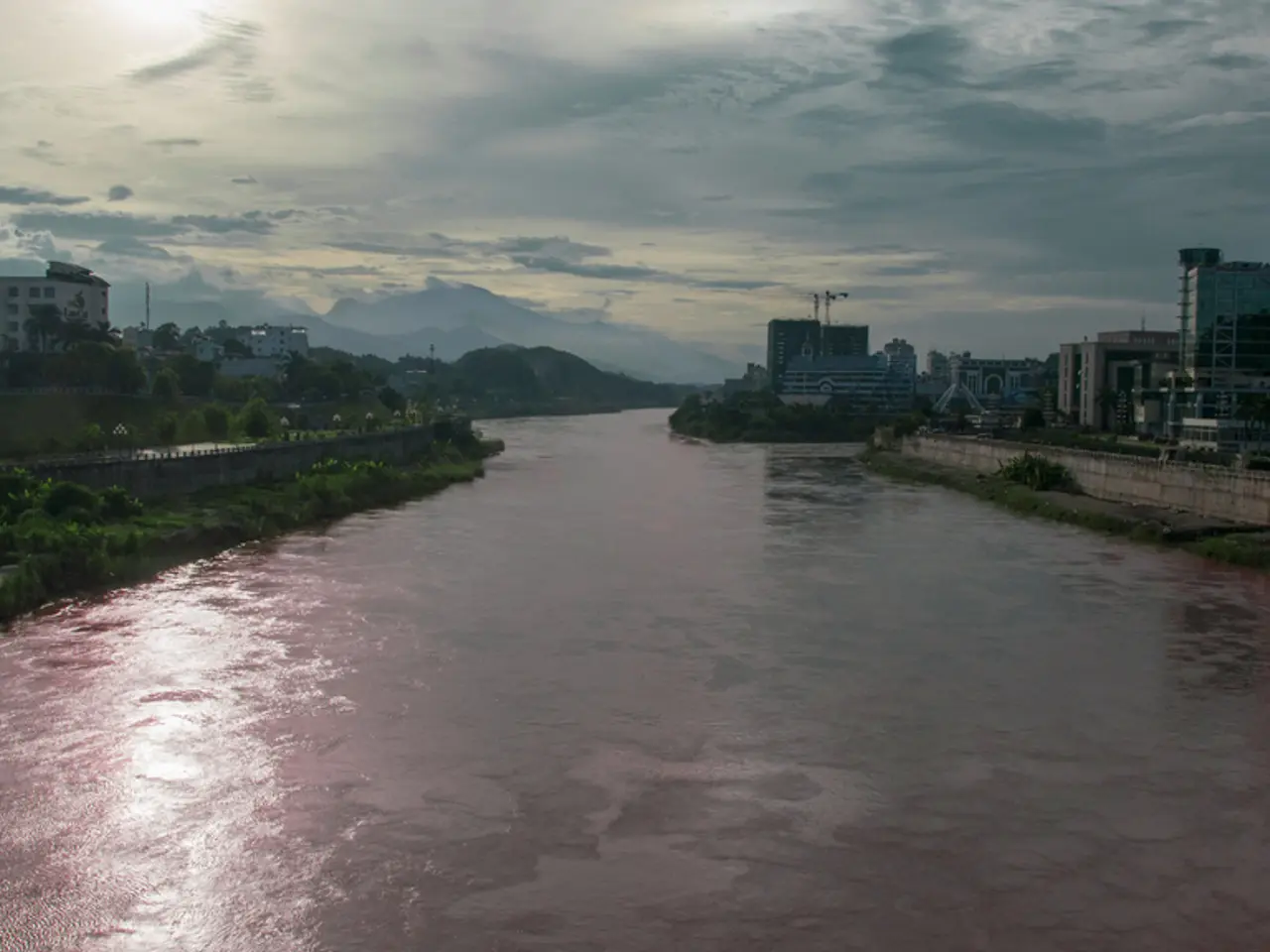Contaminated Tap Water Alert in Four Meuse Towns: Residents Prohibited from Drinking
In a recent development, authorities in France have identified high levels of PFAS, also known as "forever chemicals," in the drinking water of several communes in the Meuse and Ardennes regions. The contamination, linked to the spread of paper mill sludge on agricultural land near water sources, has led to a ban on tap water consumption in several affected communities.
The contamination has been detected in 17 communes straddling Meuse and Ardennes, with PFAS levels exceeding regulatory limits by 3 to 27 times[1][3]. As a precautionary measure, the consumption of tap water has been banned in four communes of the Meuse and 12 communes in the Ardennes, affecting a total of 2,800 inhabitants[1][5].
The source of the pollution remains unconfirmed, but local officials have accused a nearby paper mill of burying paper mill sludge on a plot of land above the source in Villy, causing high levels of PFAS[1]. The Meuse prefecture has asked affected municipalities to ensure the distribution of bottles of water to residents, while the Ardennes prefect is instructing municipalities to implement an action plan to reduce PFAS levels in water and make it conform to current standards[1][4].
The crisis has sparked public concern and criticism, with local officials expressing frustration about the long-term financial and health impacts on affected communities, who bear the cost of buying bottled water while the contamination is addressed[2]. Investigations by media like Disclose and France 3 have revealed this crisis, linking it back to the historic industrial use and mishandling of PFAS compounds.
The event highlights broader issues about insufficient regulation and control of PFAS chemicals in France and Europe, with calls from experts and politicians for stronger protective measures, wider monitoring beyond the limited number of PFAS molecules currently regulated, and better support for affected municipalities to finance remediation[2].
PFAS are extensively used in industry since the mid-20th century for products like non-stick pans, waterproof clothing, and cosmetics. These chemicals are difficult to eliminate once in water or soil, making their presence in drinking water a significant concern. PFAS can have harmful effects on human health, including increased cholesterol levels, cancers, and effects on fertility and fetal development[6].
The crisis is evolving rapidly as authorities and independent bodies investigate and manage the contamination risk to public health[1][2][4][5]. For instance, in Villy, the annual expenditure for bottled water is 18,000 euros, which is 100 times more than if water were sourced directly[2]. The pollution in the affected communes could be linked to the spreading of paper mill sludge suspected of containing PFAS on agricultural parcels near drinking water intakes.
A law on forever chemicals enacted at the beginning of 2025 precisely provides for the inclusion of PFAS in the health control of drinking waters[6]. This situation underscores the urgent need for stricter regulations and more effective monitoring to protect public health and prevent similar crises in the future.
In light of the ongoing crisis, there is a call for stricter regulations in environmental-science and science, particularly in the control of PFAS chemicals, to prevent future contamination of drinking water and the associated health-and-wellness risks. The high levels of PFAS, or forever chemicals, detected in the Meuse and Ardennes regions have sparked public concern, with significant implications for the affected communities, not just in France, but also in Europe.




